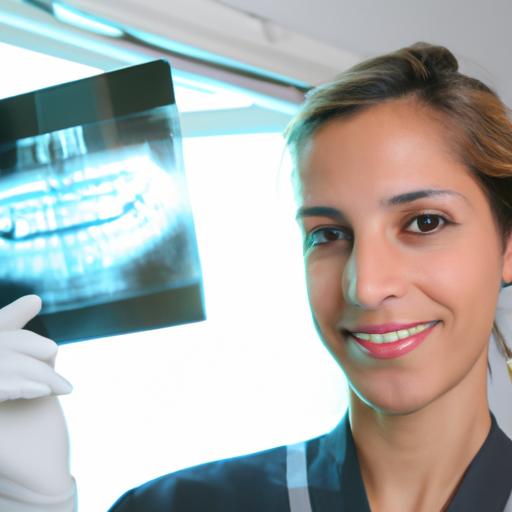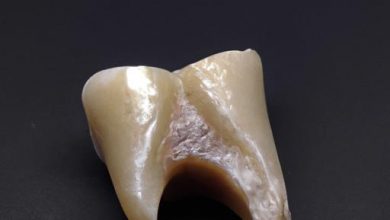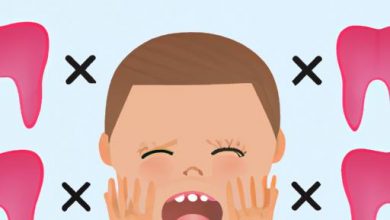Can Teeth X-Rays Cause Cancer?
As we all know, dental x-rays play a crucial role in diagnosing and treating various dental problems. However, the question remains, can teeth x-rays cause cancer? This is a question that has been debated for decades, with some studies suggesting a possible link between dental x-rays and cancer.
In this article, we will explore the risks of dental x-rays, the debate on teeth x-rays and cancer, and provide you with expert advice on how to minimize your exposure to radiation during dental x-rays.
Dental x-rays are a type of medical imaging that dentists use to see inside the teeth, gums, and jawbone. They are used to diagnose problems such as tooth decay, gum disease, and oral cancer. Dental x-rays use a small amount of ionizing radiation to create an image of the mouth and teeth.
There are two main types of dental x-rays: intraoral and extraoral. Intraoral x-rays are taken inside the mouth and provide detailed images of individual teeth. Extraoral x-rays are taken outside the mouth and provide images of the entire mouth, including the jaw and skull.
The procedure for taking dental x-rays is relatively simple. The patient is asked to wear a lead apron to protect their body from radiation. The dentist then places a small sensor or film inside the mouth and positions the x-ray machine outside the mouth to take the image. The entire process takes only a few minutes, and the results are available almost immediately.
Cancer and Radiation

Before we dive into the risks of dental x-rays, it’s essential to understand what cancer is and how radiation can cause it. Cancer is a disease caused by the uncontrolled growth of abnormal cells in the body. It can occur in any part of the body, including the mouth and throat.
Radiation is a form of energy that travels through space and can penetrate through different materials, including the human body. Ionizing radiation, the type used in dental x-rays, has enough energy to remove tightly bound electrons from atoms, which can damage or kill cells.
Exposure to ionizing radiation has been linked to an increased risk of cancer, particularly in organs such as the thyroid, lung, and breast. The risk of cancer depends on the amount of radiation exposure, the age of the person at the time of exposure, and the part of the body exposed to radiation.
The Risks of Dental X-Rays
While dental x-rays are generally safe, they do expose patients to a small amount of ionizing radiation. The amount of radiation exposure during dental x-rays is relatively low, and the risk of developing cancer from a single dental x-ray is minimal. However, the risk can accumulate over time, especially in patients who require frequent x-rays.
The potential risks of dental x-rays include damage to DNA, which can lead to mutations and cancer, as well as damage to the salivary glands, which can affect saliva production and lead to dry mouth.
Factors that affect the risks of dental x-rays include the number of x-rays taken, the type of x-ray used, the patient’s age, and their overall health. For example, children and pregnant women are more sensitive to radiation and may require additional precautions.
It’s essential to note that the benefits of dental x-rays generally outweigh the risks, as they play a crucial role in diagnosing and treating dental problems. However, it’s important to minimize radiation exposure whenever possible by following the ALARA principle, which stands for “as low as reasonably achievable.” This means using the lowest possible dose of radiation required to obtain a diagnostic image.
The Debate on Teeth X-Rays and Cancer
There have been numerous studies conducted over the years to determine whether dental x-rays can cause cancer. Some studies have suggested a possible link between dental x-rays and cancer, while others have found no association.
Studies on the correlation between dental x-rays and cancer have been inconclusive. One study published in the American Journal of Epidemiology found that people who had frequent dental x-rays had an increased risk of thyroid cancer. However, other studies have found no association between dental x-rays and cancer.
The arguments from both sides are as follows. Some experts argue that the radiation exposure from dental x-rays is minimal and poses little to no risk of cancer. They also claim that dental x-rays are necessary for diagnosing and treating dental problems and that avoiding them could lead to more significant health issues.
On the other hand, some experts argue that even small amounts of radiation exposure can increase the risk of cancer, and that dental x-rays should be avoided whenever possible. They also suggest that other diagnostic tools, such as digital imaging, could be used instead of x-rays.
The conclusions of the studies have been mixed. Some studies suggest that dental x-rays may increase the risk of cancer, while others suggest that there is no association. However, most experts agree that the benefits of dental x-rays outweigh the potential risks, and that they are a necessary tool for diagnosing and treating dental problems.
Conclusion
In conclusion, the question of whether dental x-rays can cause cancer remains unanswered. While there have been studies conducted on the topic, the results have been inconclusive, and the debate continues.
It is essential to understand the risks of dental x-rays and take steps to minimize your exposure to radiation. Talk to your dentist about the necessity of x-rays and ask about the use of digital imaging as an alternative.
At Zahnweiss Info, we are dedicated to providing you with the latest updates on dental health news, treatments, and therapies, inspiring patient stories, and expert advice. Remember, regular dental check-ups and x-rays are crucial for maintaining good oral health, but it is equally important to understand the risks and take steps to minimize your exposure to radiation.




